Pezanas
Roman Era:
The town’s name derives from Piscenae, likely from the Latin piscenis (fishpond), referencing a legendary fish-filled lake behind its château 110. Its strategic location on a Roman route between Rodez and Saint-Thibéry boosted early development.
Medieval Rise
Royal Domain:
In 1261, Pézenas became a royal seigniory under King Louis IX (Saint Louis), hosting influential trade fairs three times a year.
Jewish Heritage:
A Jewish community thrived from the 13th century until their expulsion in 1394. The Rue des Juifs (Street of the Jews) and a possible mikveh (ritual bath) remain as traces of this era.
Golden Age: 16th–17th Centuries
Political Hub:
As the seat of the Governors of Languedoc, Pézenas attracted nobility, who built grand hôtels particuliers (mansions) like the Hôtel de Lacoste.
Molière’s Legacy:
The playwright Molière lived here (1650–1657) with his theater troupe, drawing inspiration from local characters—notably at barber Gély’s shop—for works like Tartuffe. Marcel Pagnol later quipped, "If Jean-Baptiste Poquelin was born in Paris, Molière was born in Pézenas..
The town’s name derives from Piscenae, likely from the Latin piscenis (fishpond), referencing a legendary fish-filled lake behind its château 110. Its strategic location on a Roman route between Rodez and Saint-Thibéry boosted early development.
Medieval Rise
Royal Domain:
In 1261, Pézenas became a royal seigniory under King Louis IX (Saint Louis), hosting influential trade fairs three times a year.
Jewish Heritage:
A Jewish community thrived from the 13th century until their expulsion in 1394. The Rue des Juifs (Street of the Jews) and a possible mikveh (ritual bath) remain as traces of this era.
Golden Age: 16th–17th Centuries
Political Hub:
As the seat of the Governors of Languedoc, Pézenas attracted nobility, who built grand hôtels particuliers (mansions) like the Hôtel de Lacoste.
Molière’s Legacy:
The playwright Molière lived here (1650–1657) with his theater troupe, drawing inspiration from local characters—notably at barber Gély’s shop—for works like Tartuffe. Marcel Pagnol later quipped, "If Jean-Baptiste Poquelin was born in Paris, Molière was born in Pézenas..
Fun Fact
he town’s signature pastry, the Petit Pâté de Pézenas, is a bite-sized spiced meat pie shaped like a tiny cotton reel. Legend claims it was introduced in the 18th century by the Indian chef of Lord Clive, the British Governor of India, who vacationed in Pézenas in 1768. Locals loved the recipe so much they adopted it—but with a twist: they insisted on making the pies exactly 7 cm tall, allegedly to honor the seven sins of Molière’s comedies. To this day, bakers jokingly argue over whether the height rule is sacred or just a tall tale
Molière’s ghost might chuckle at the town’s Door Museum—because nothing says "cultural heritage" like a shrine to hinges and knockers.
Molière’s ghost might chuckle at the town’s Door Museum—because nothing says "cultural heritage" like a shrine to hinges and knockers.
Images
Click on any image for enlarged image and navigation views.
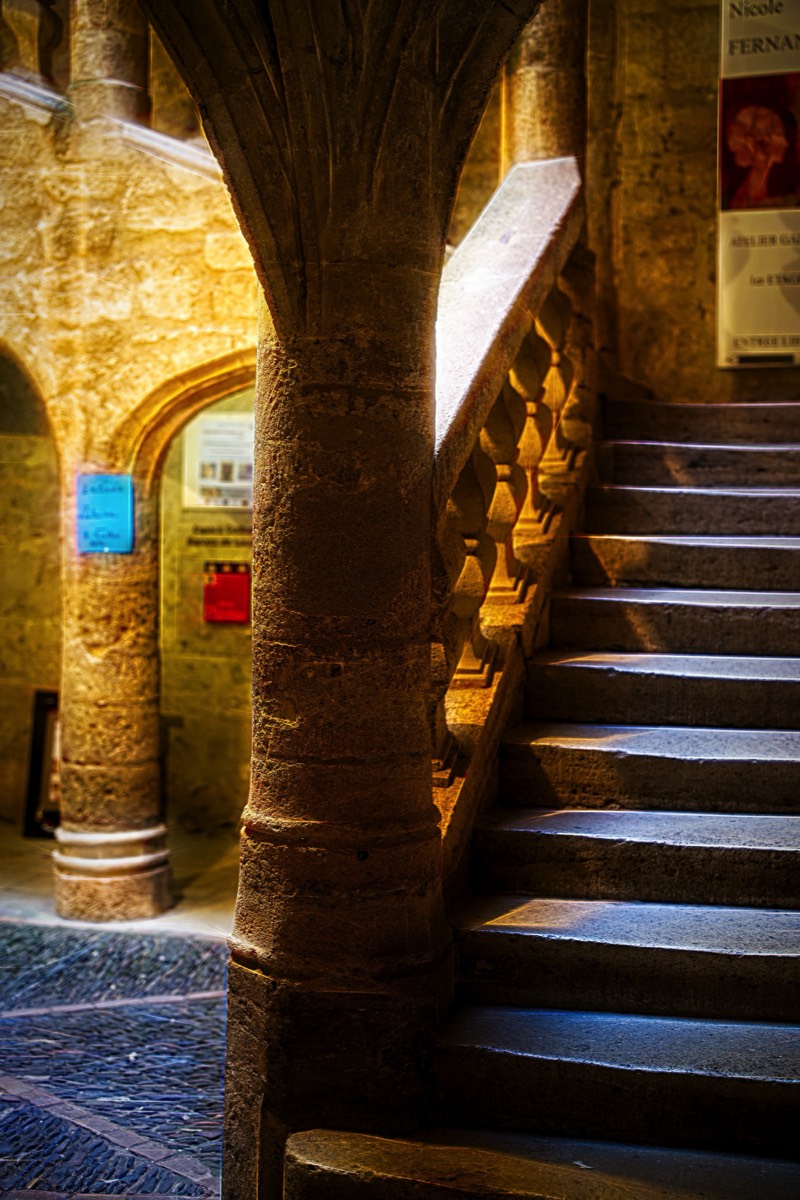
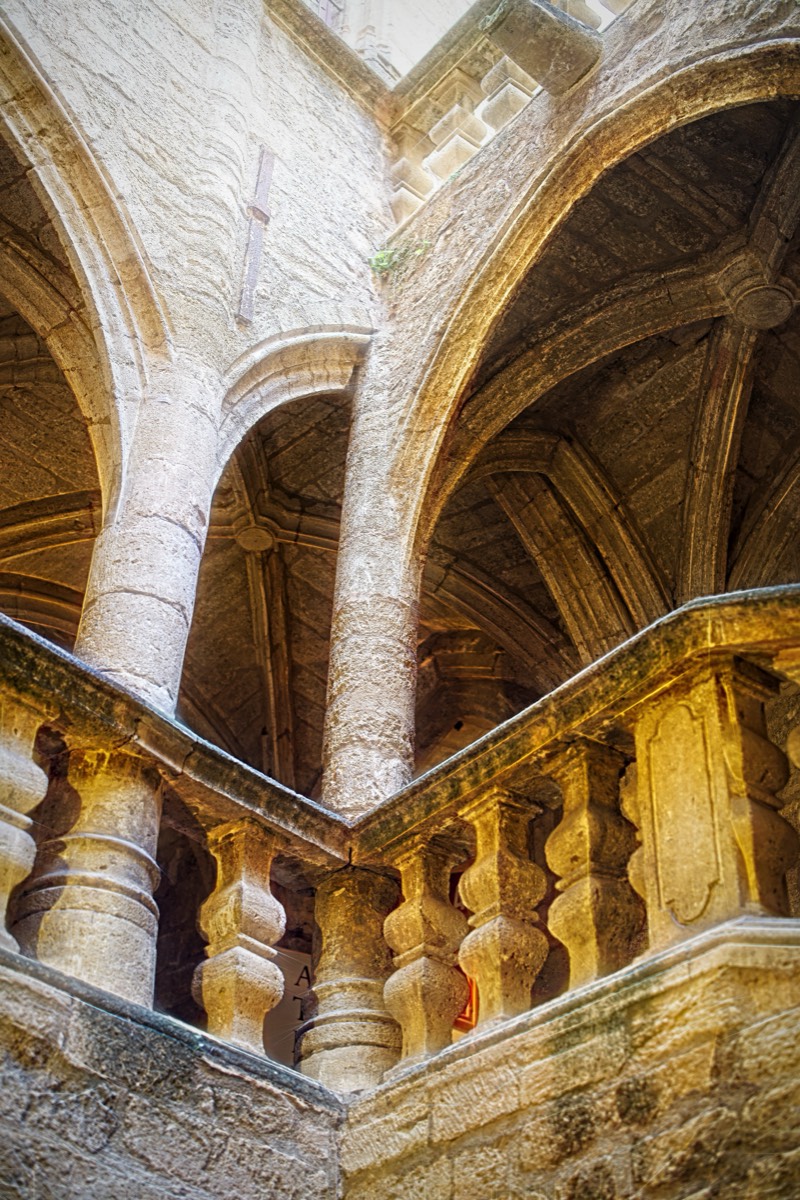
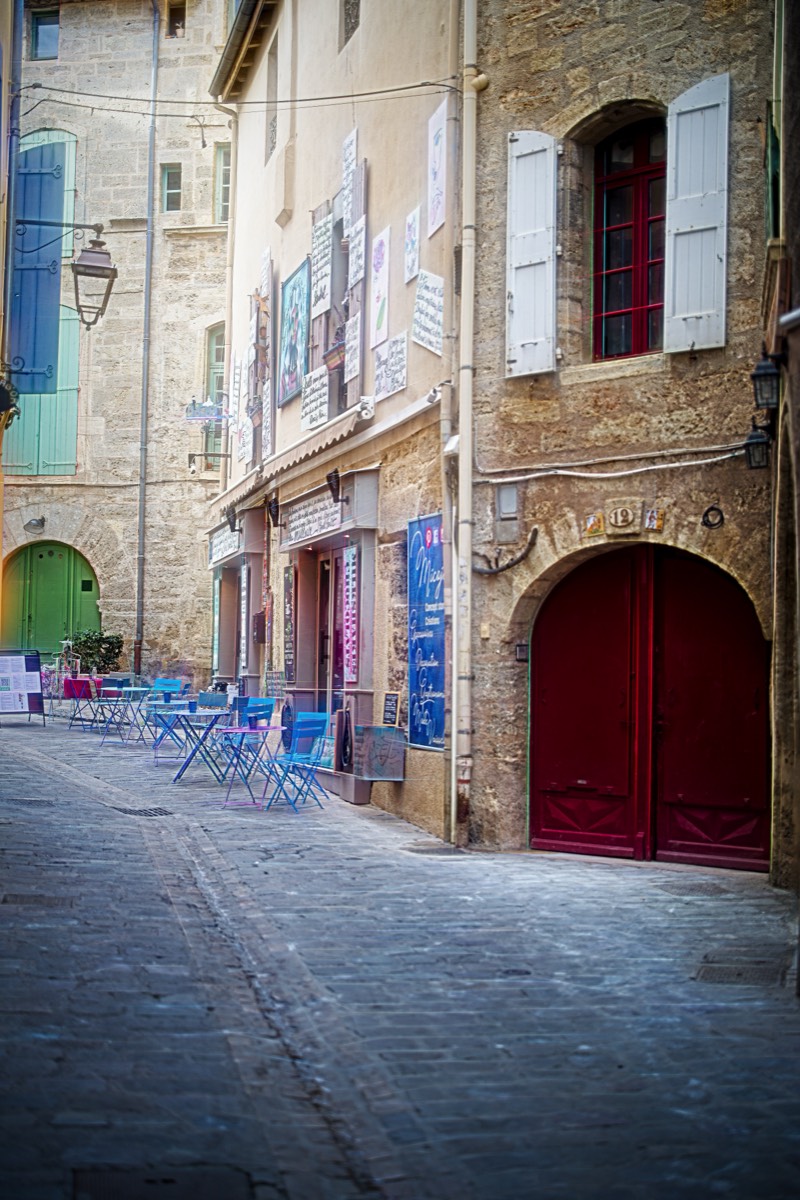


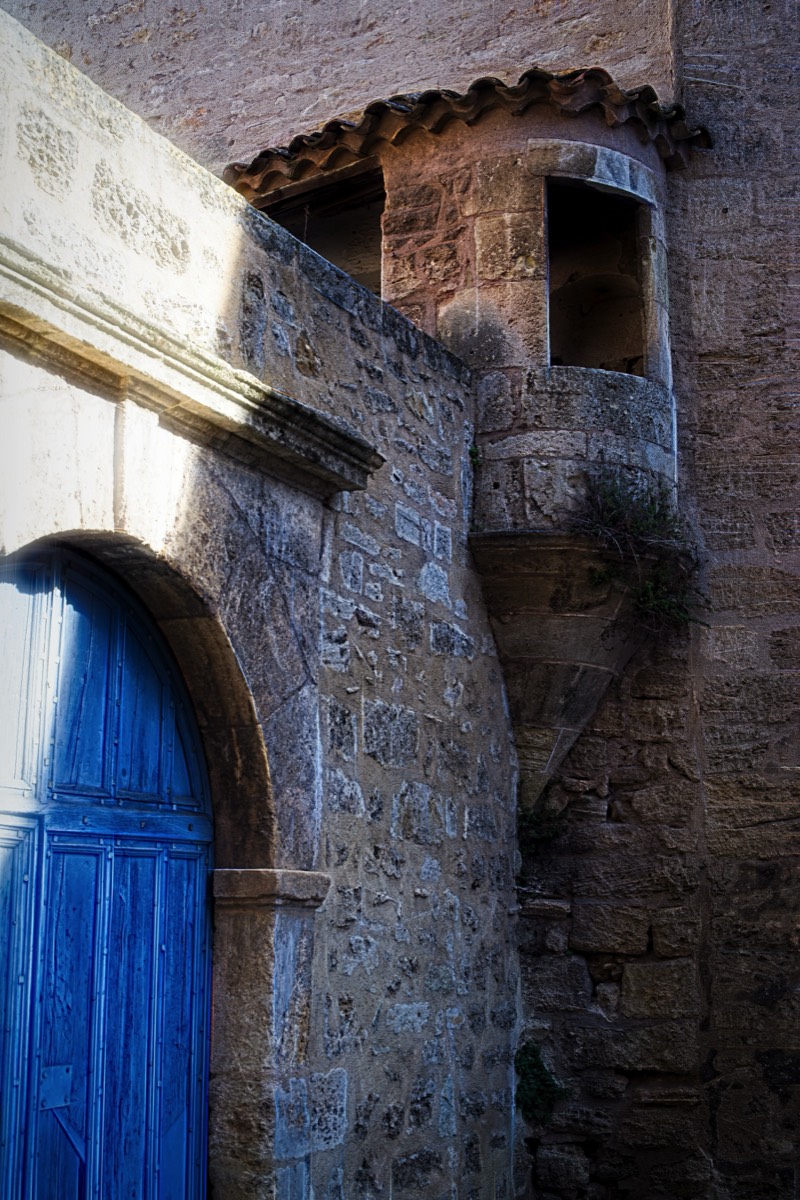
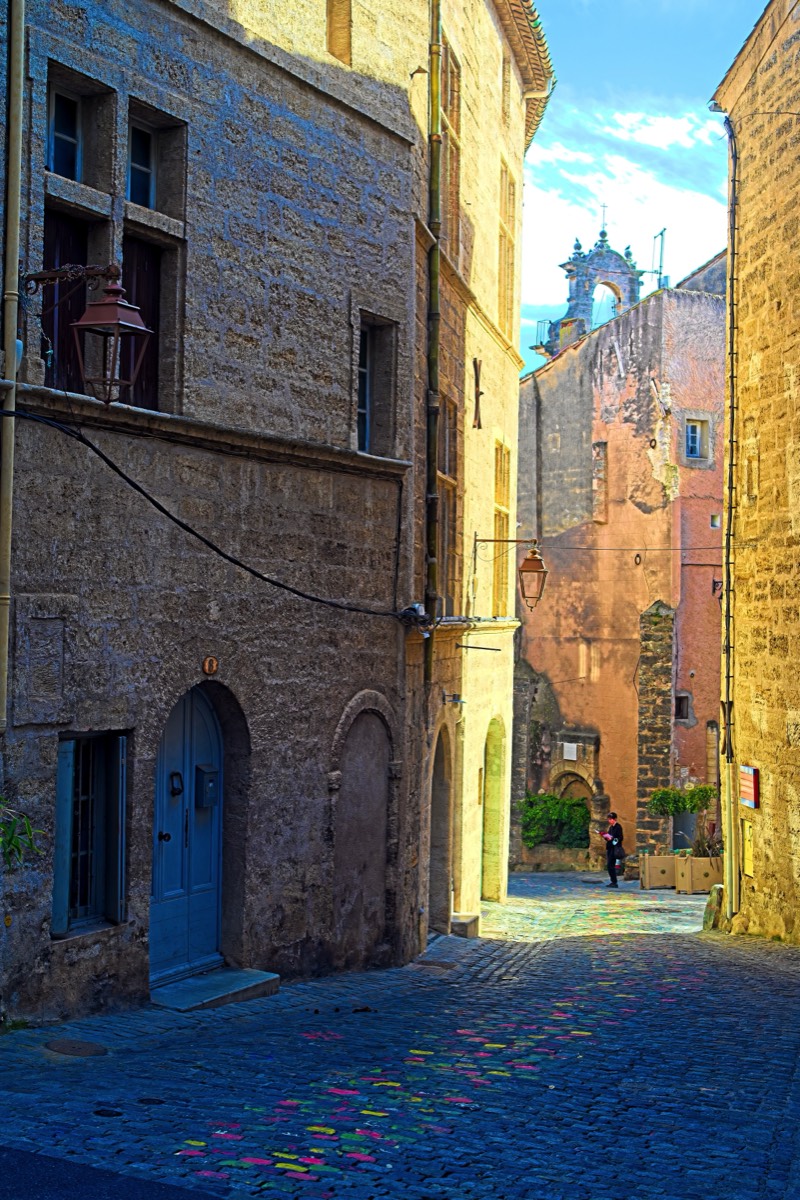
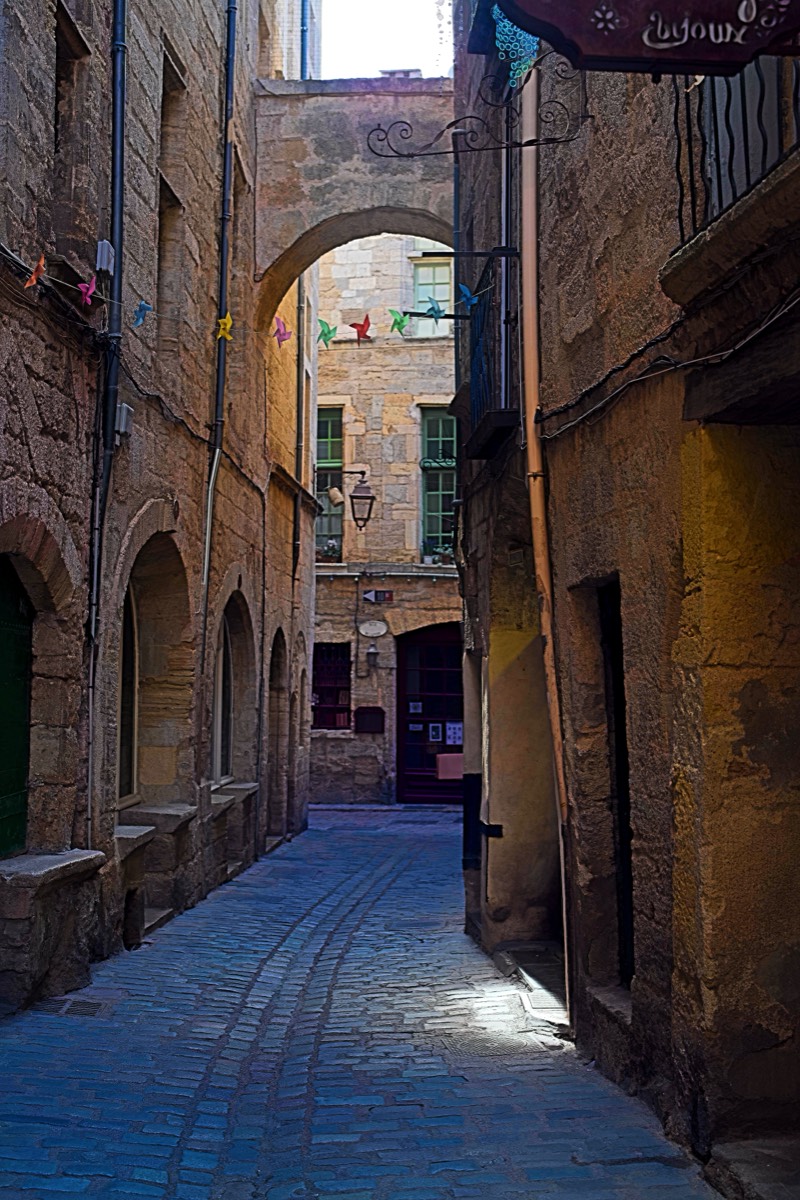
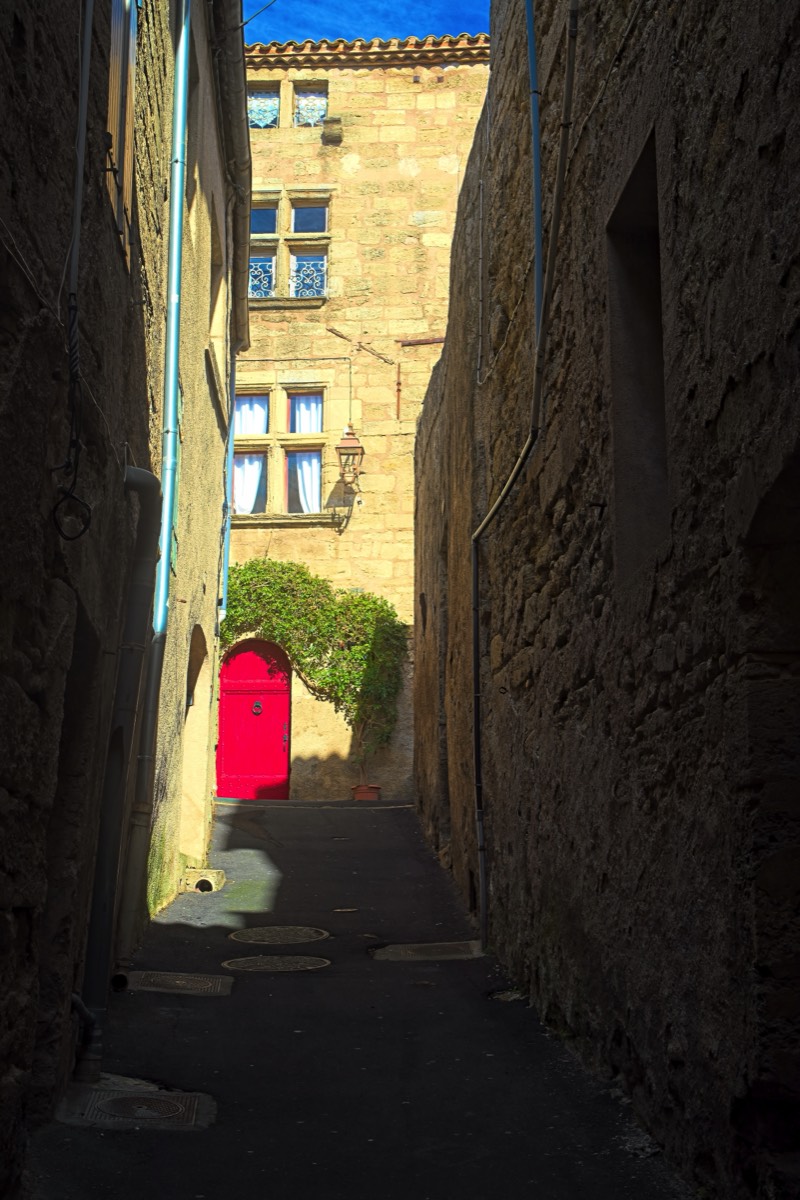
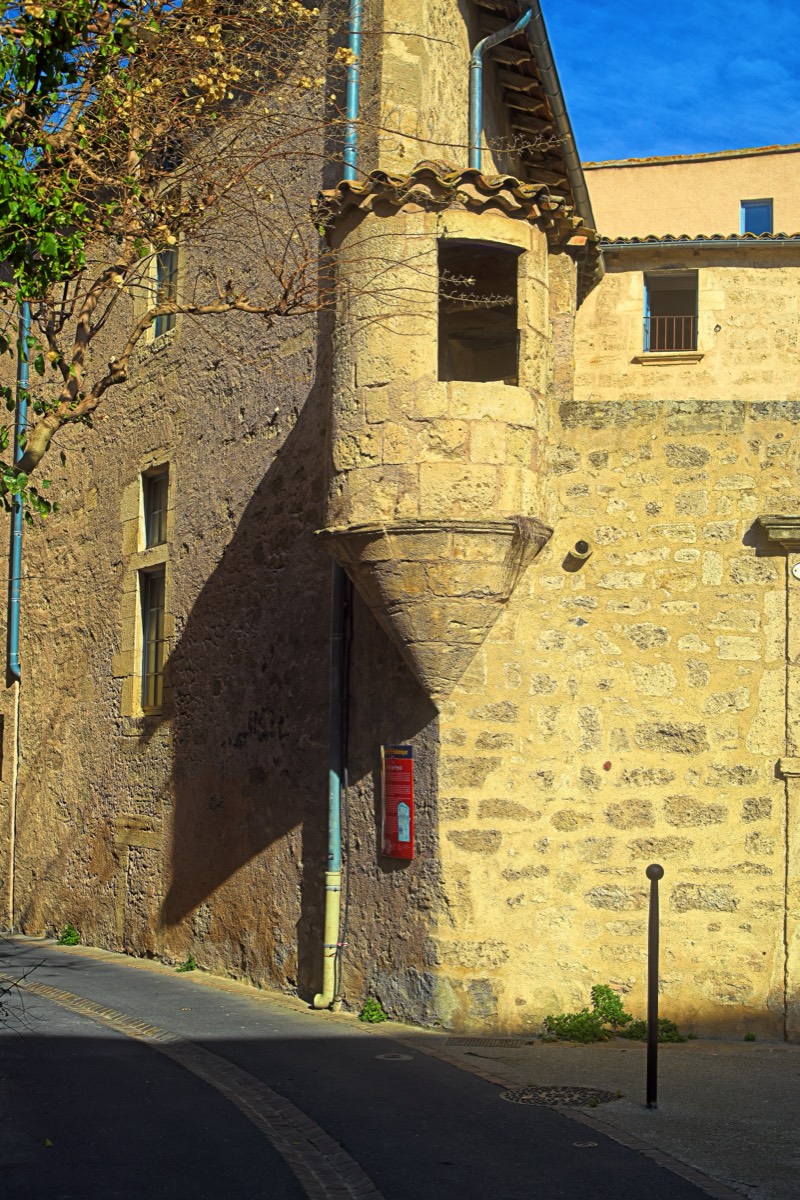
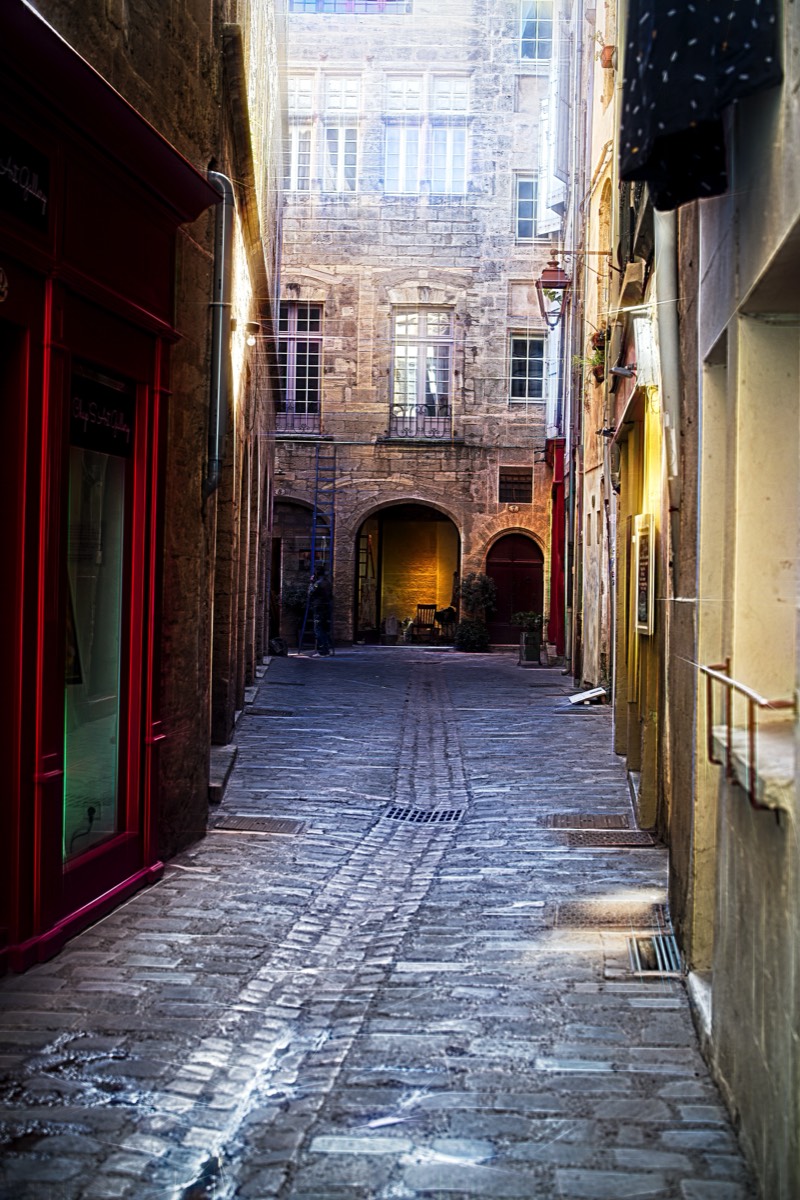
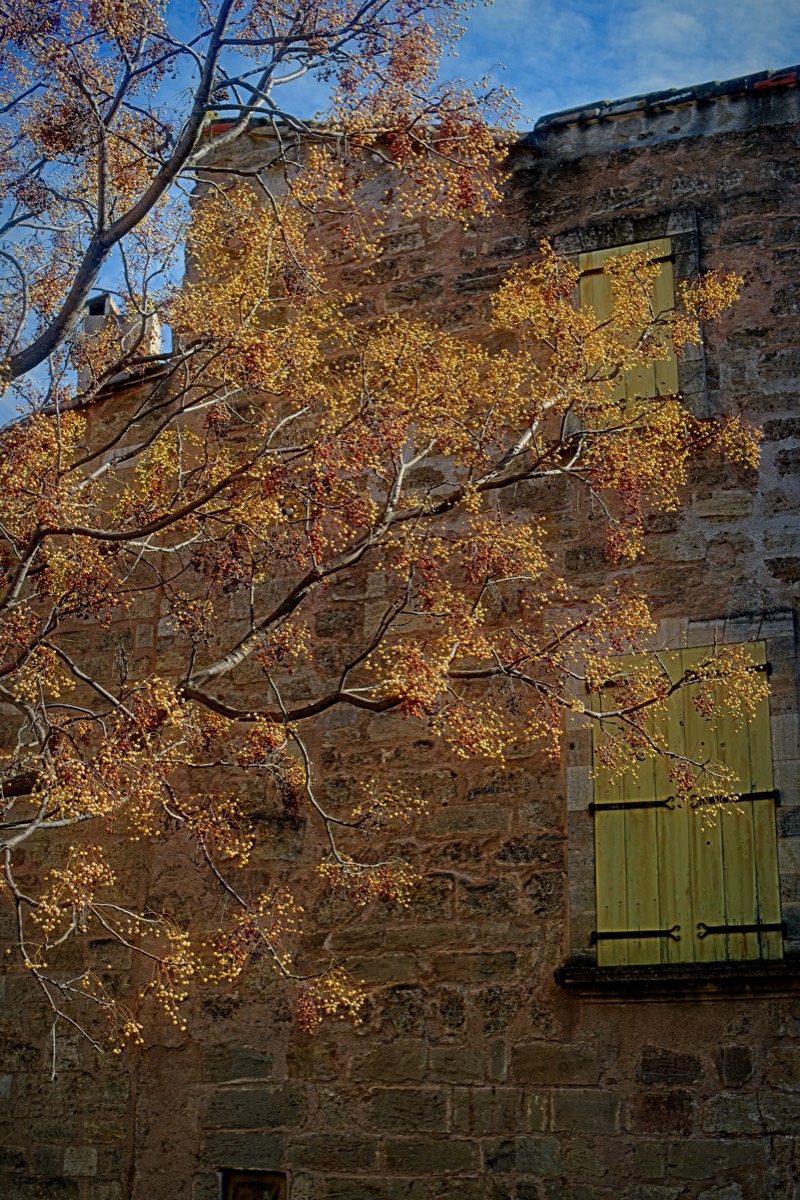
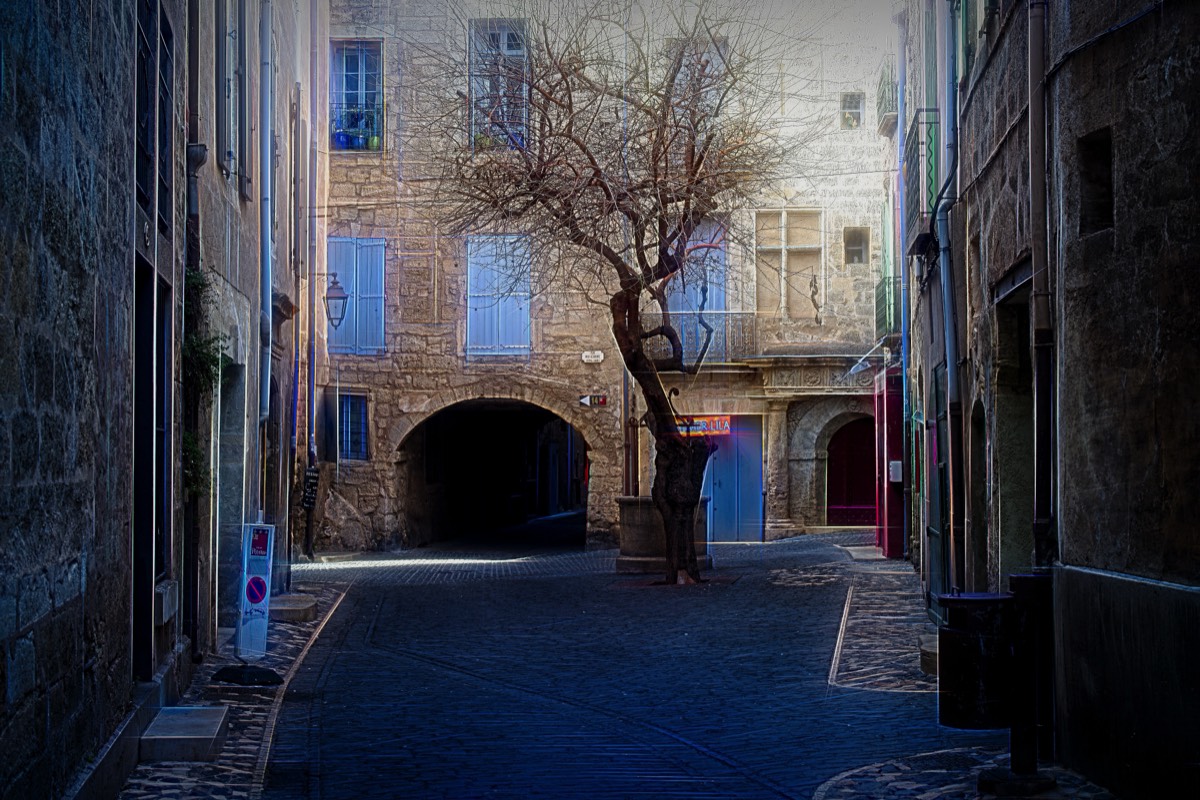
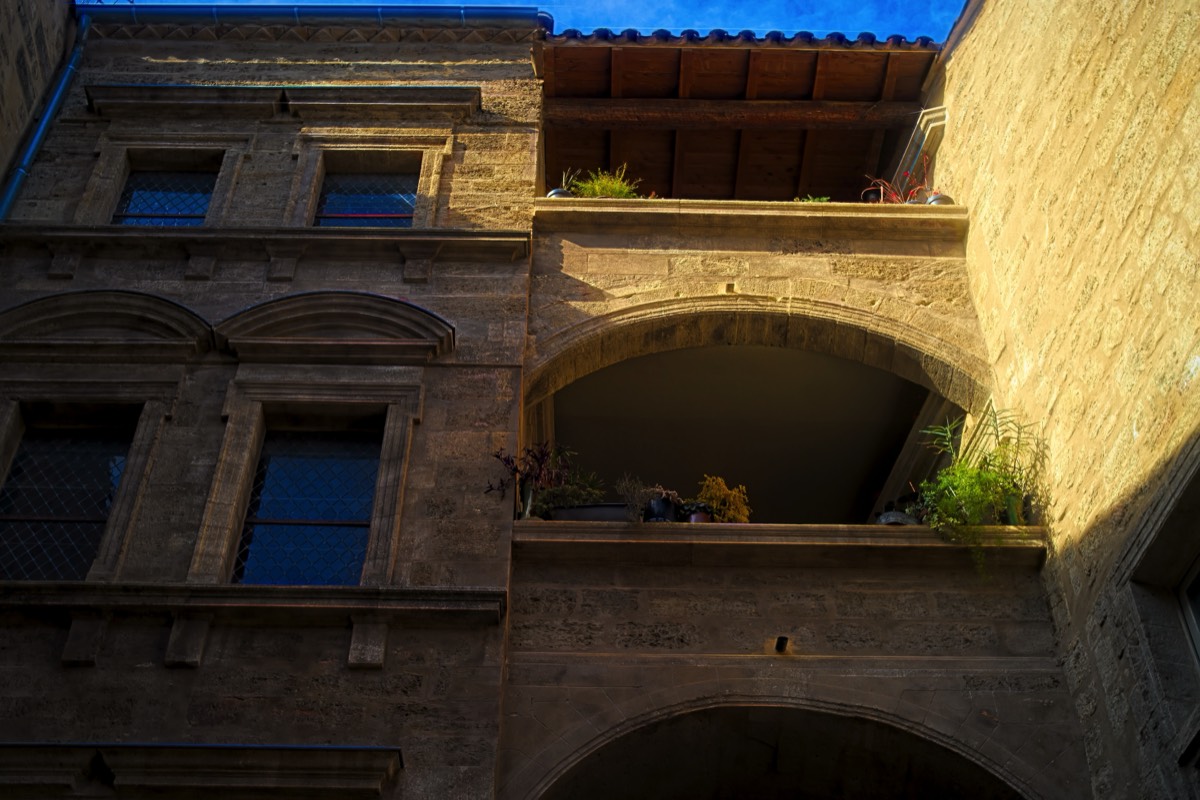
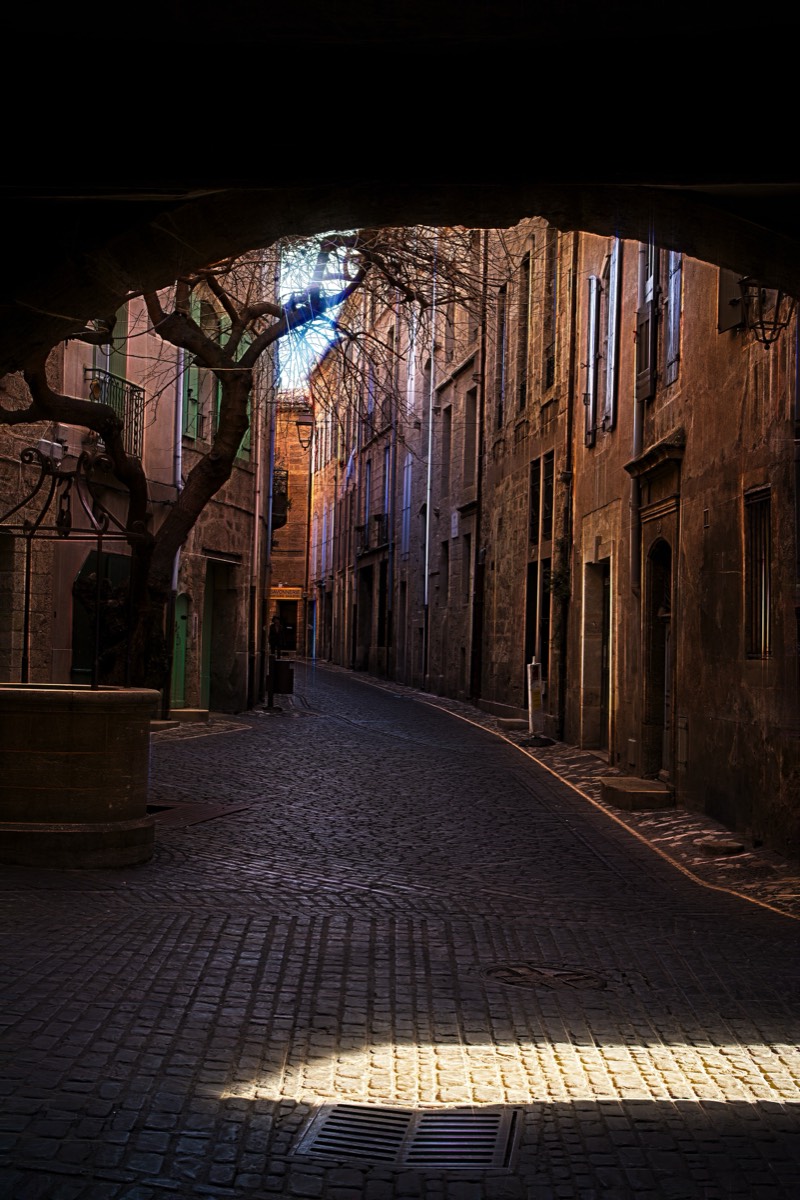

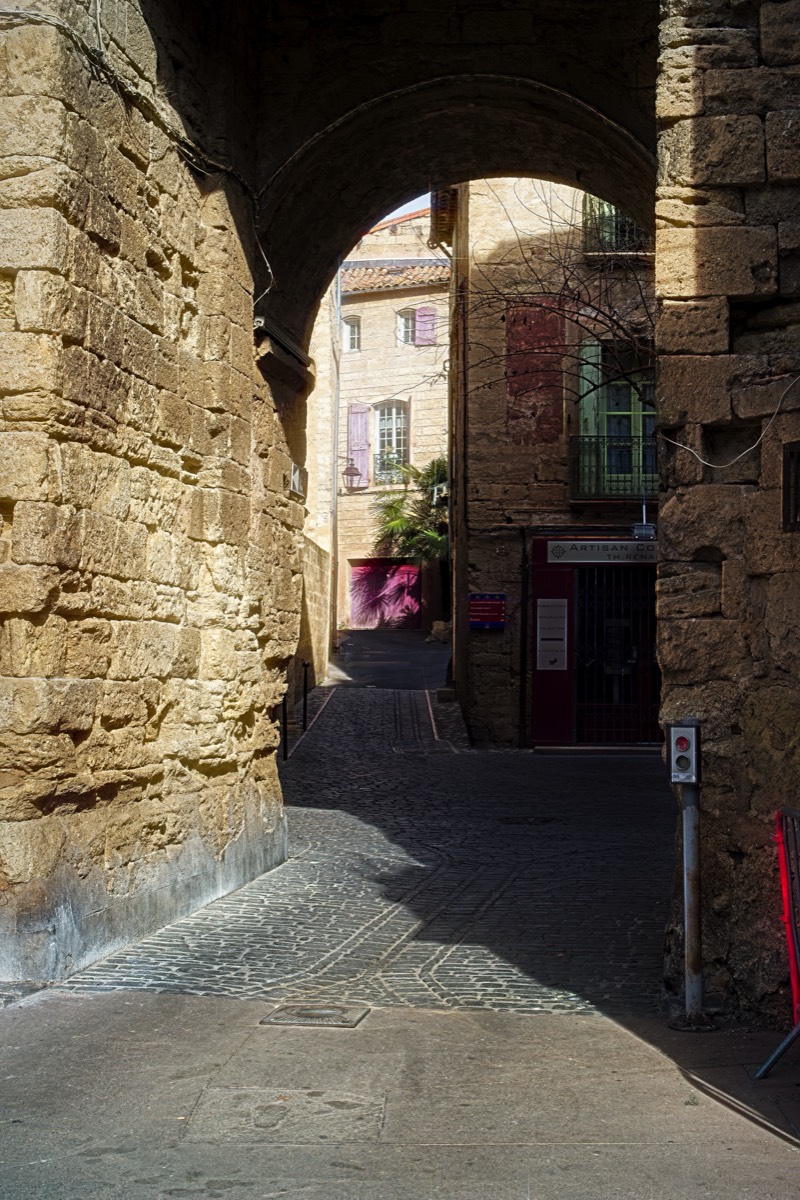
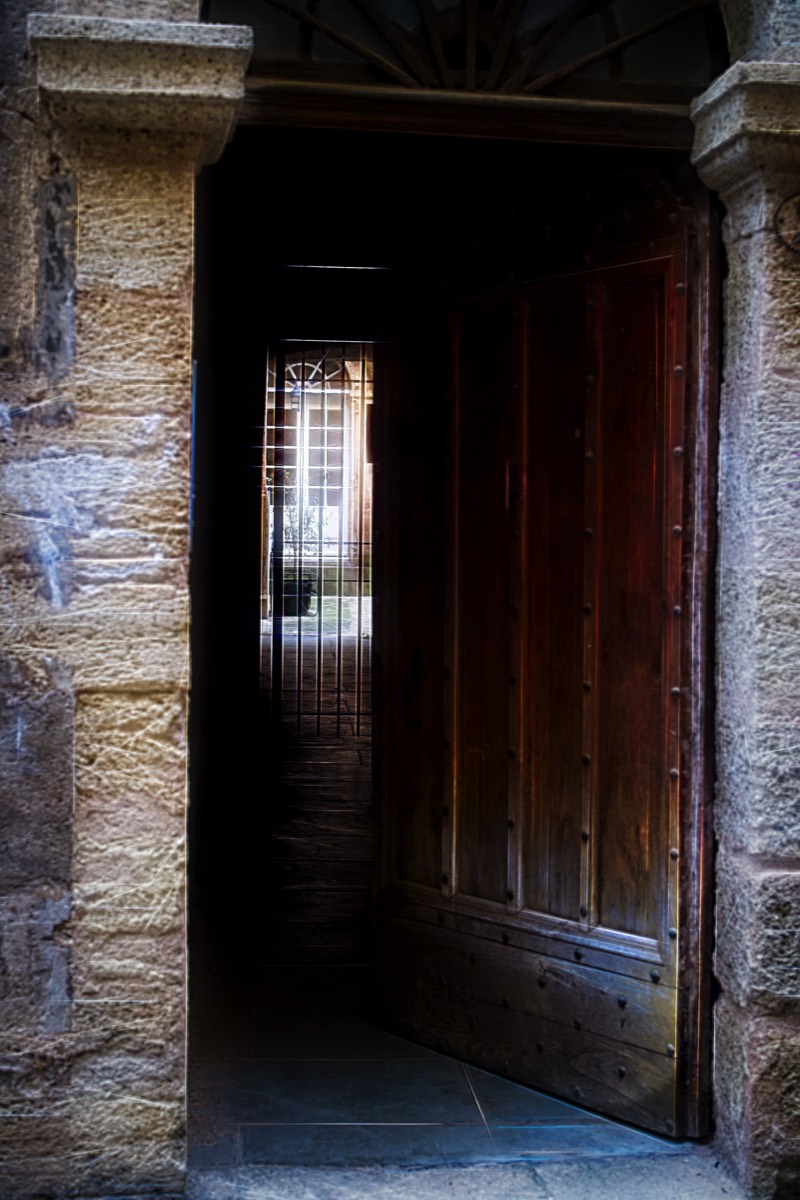
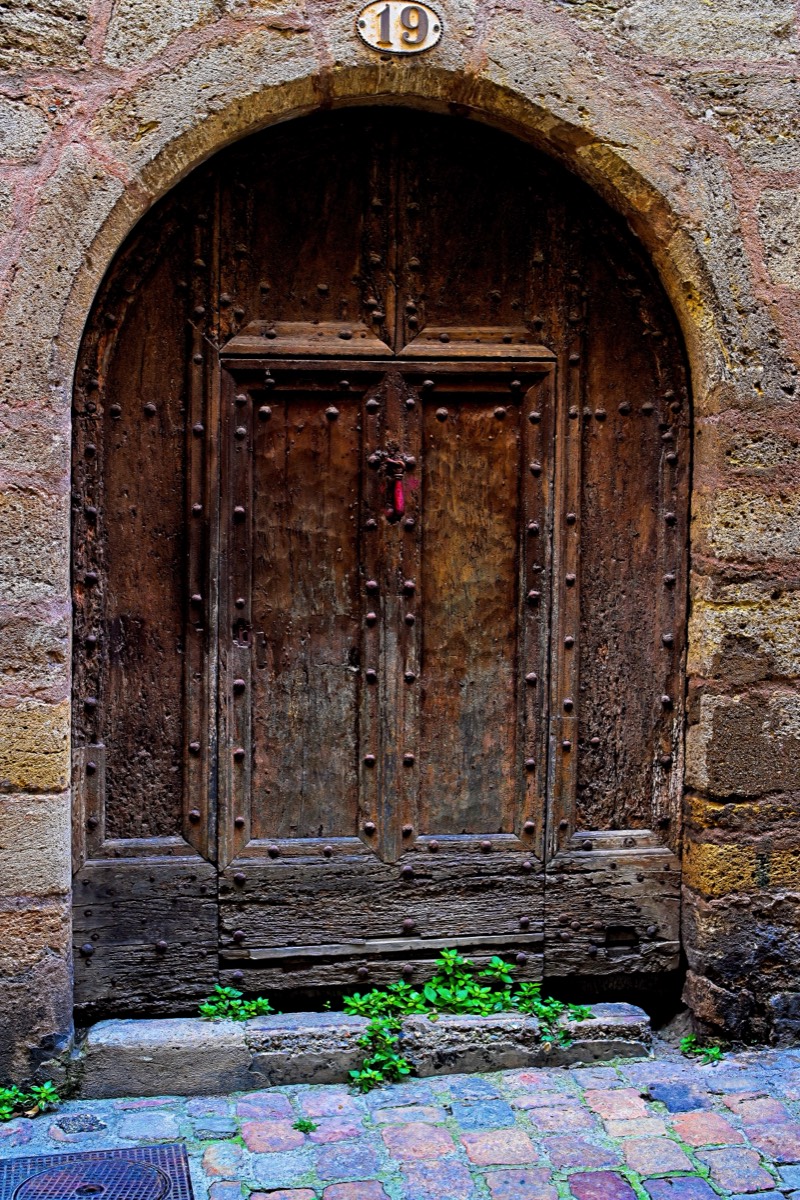
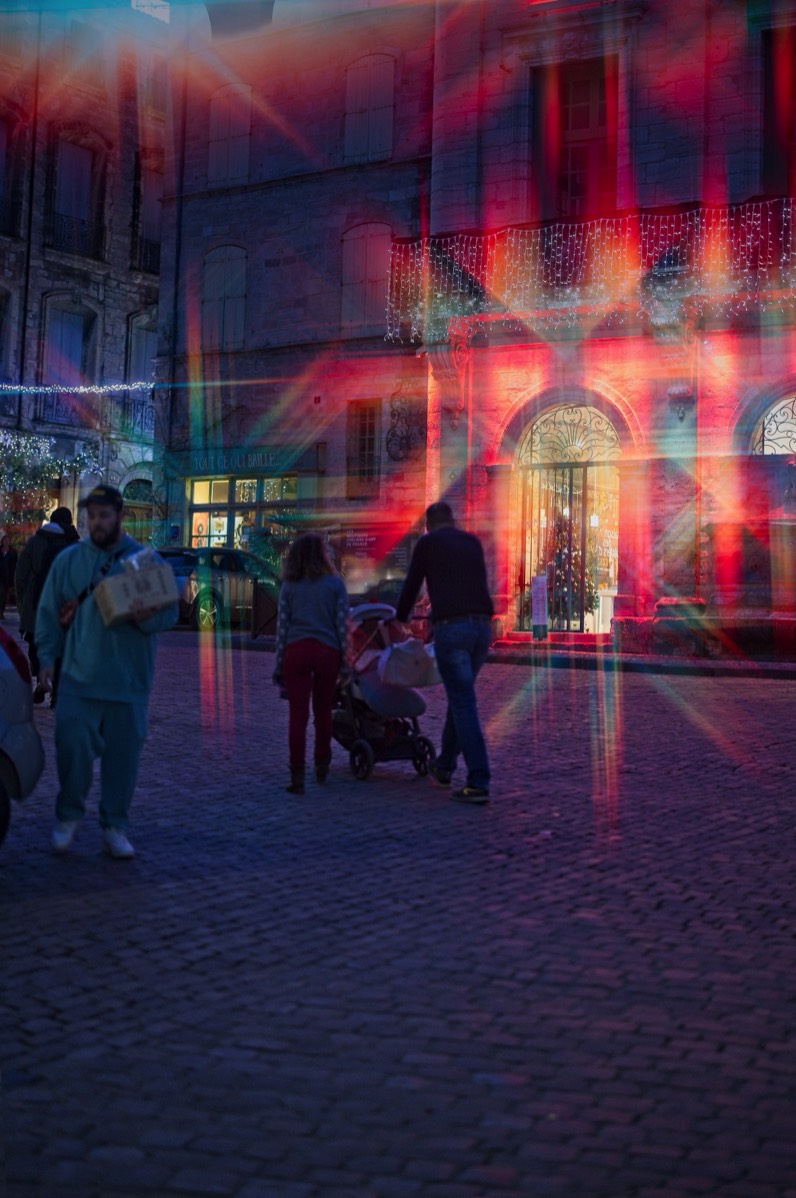
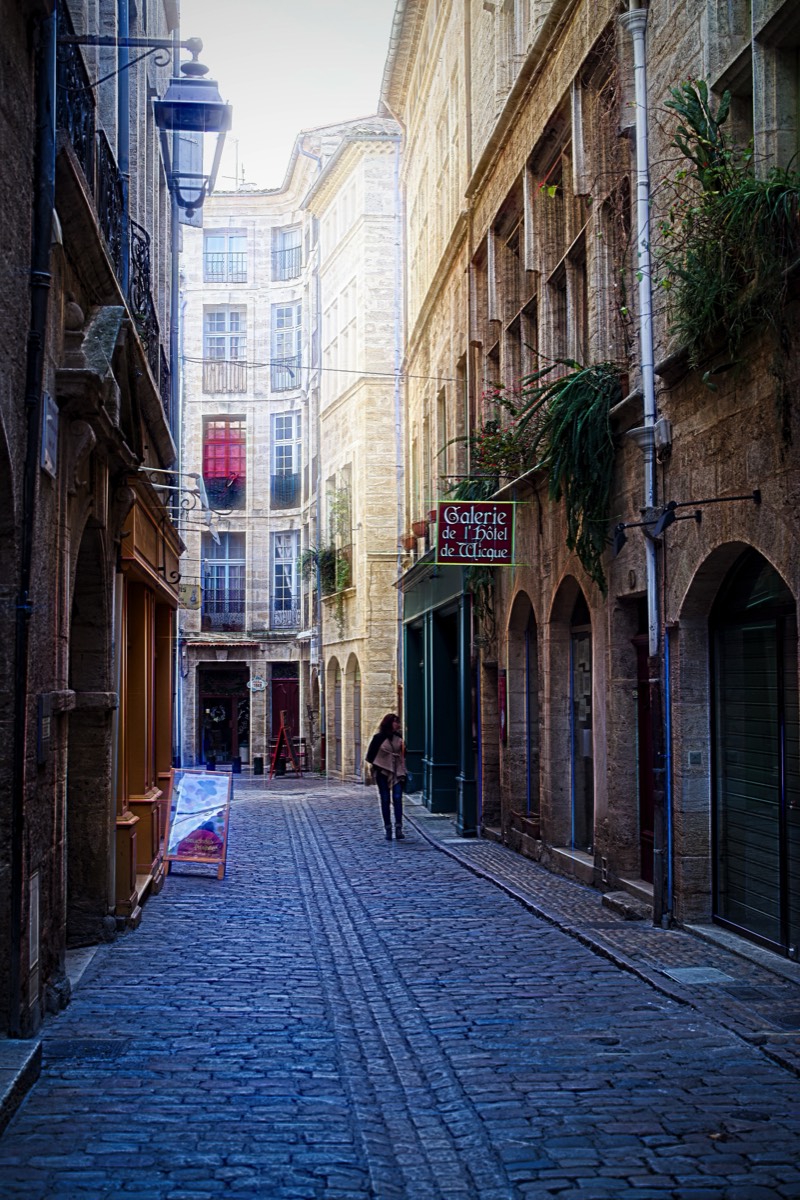
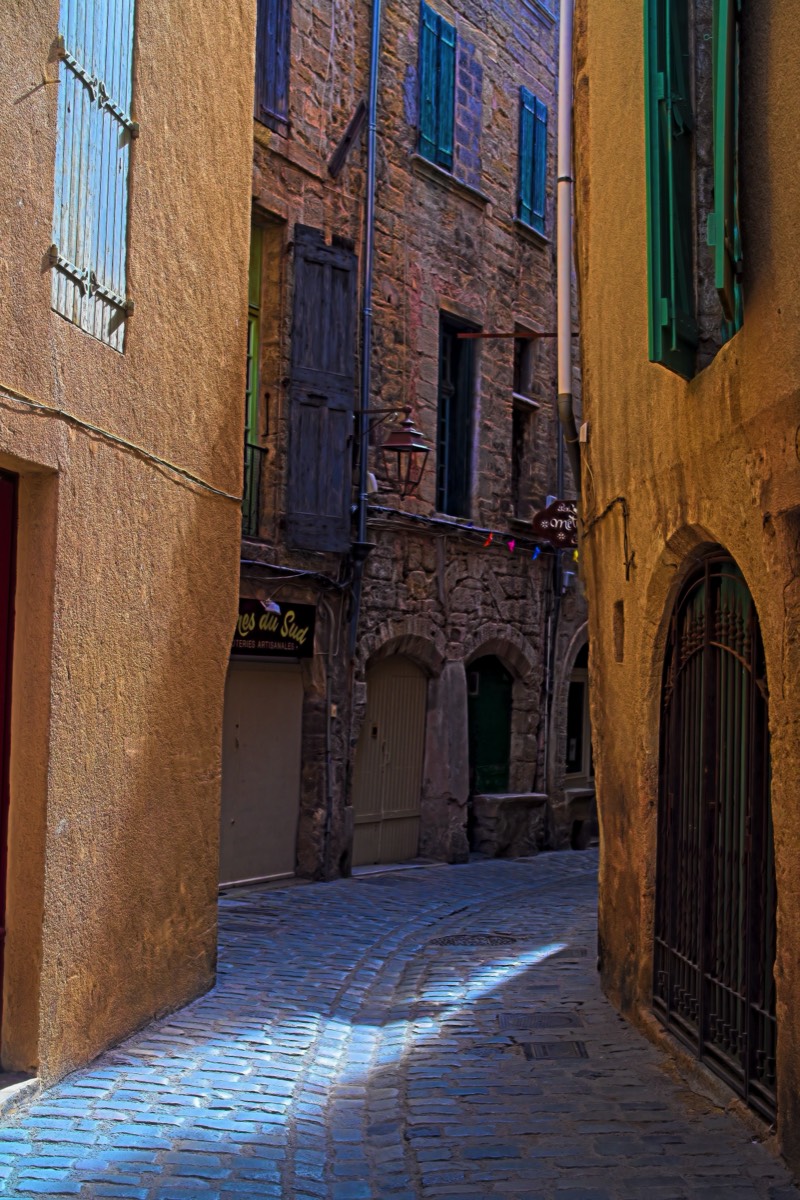
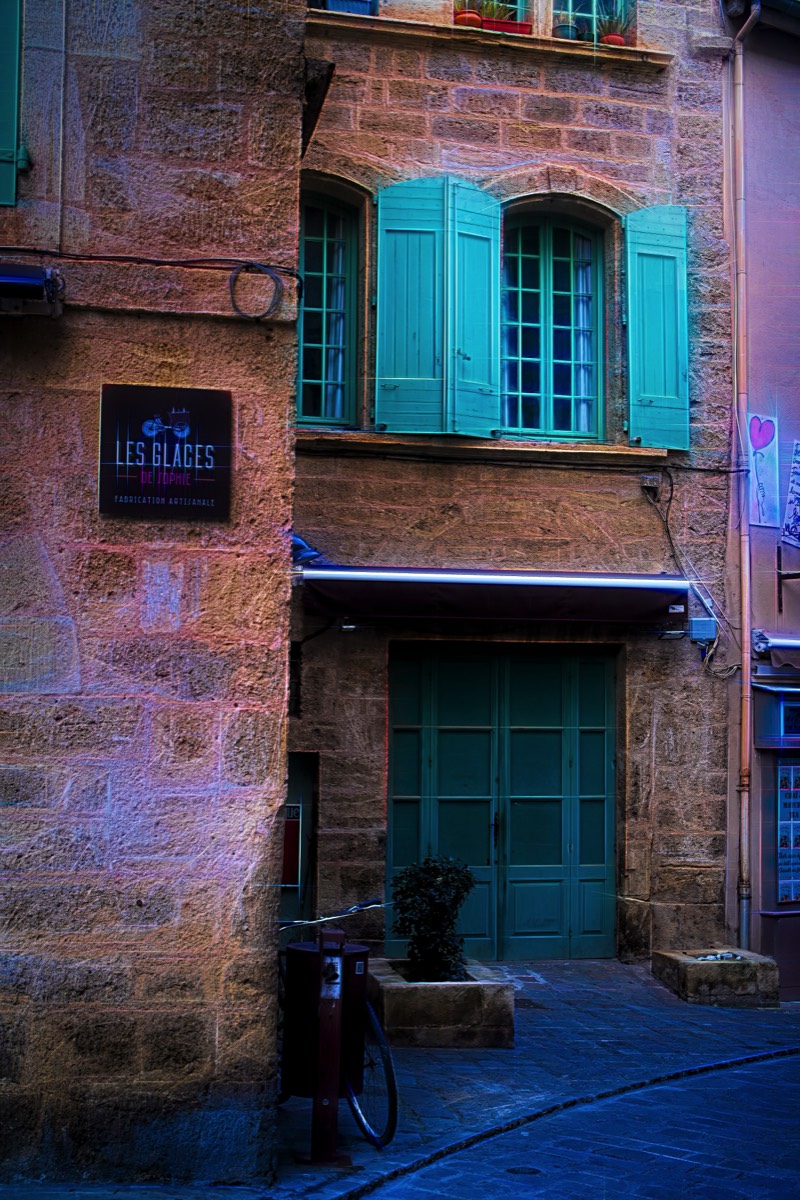
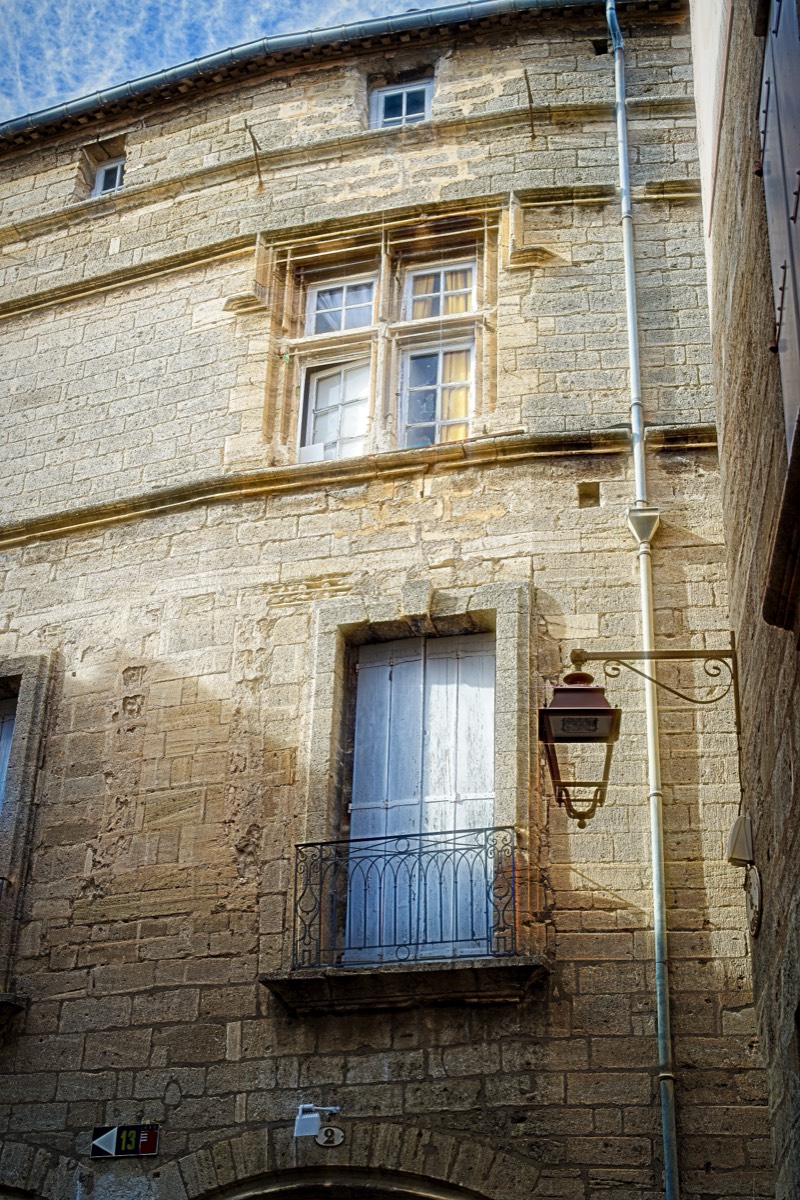
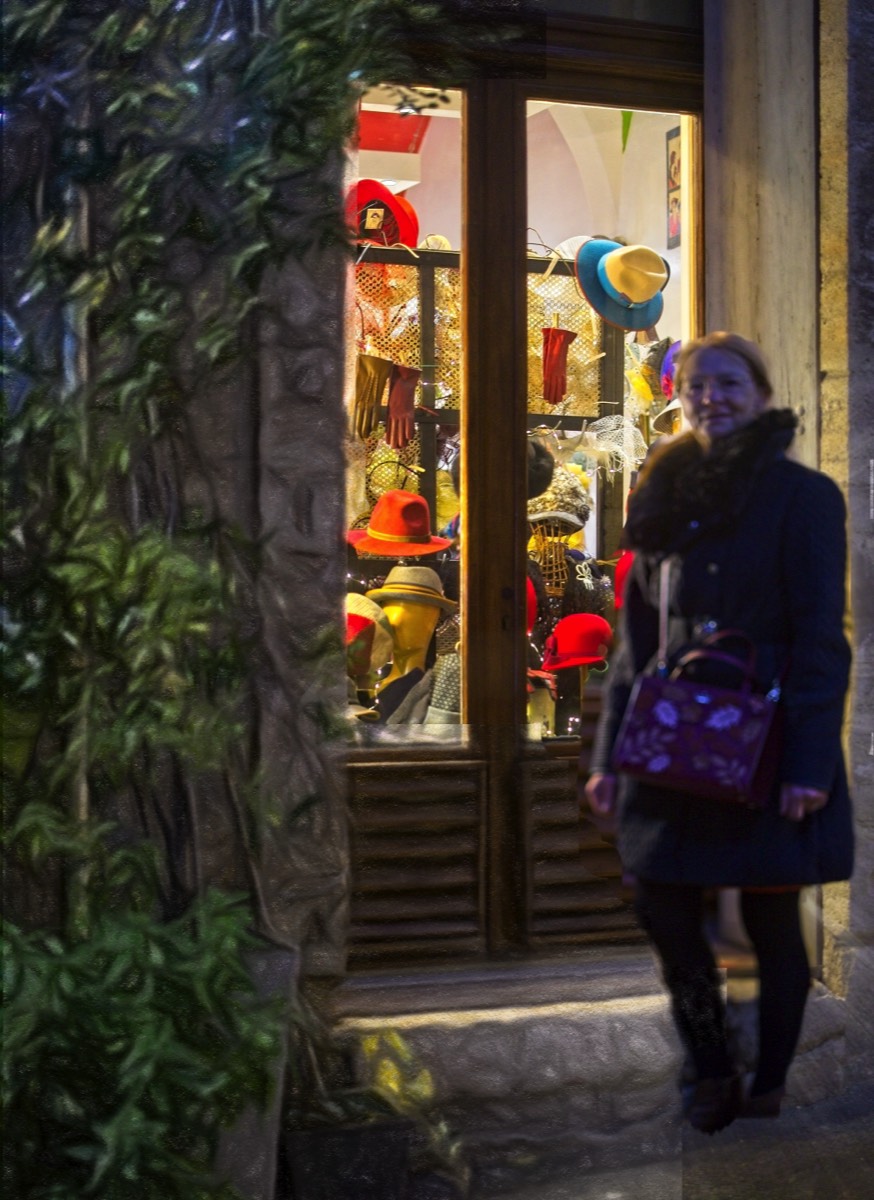


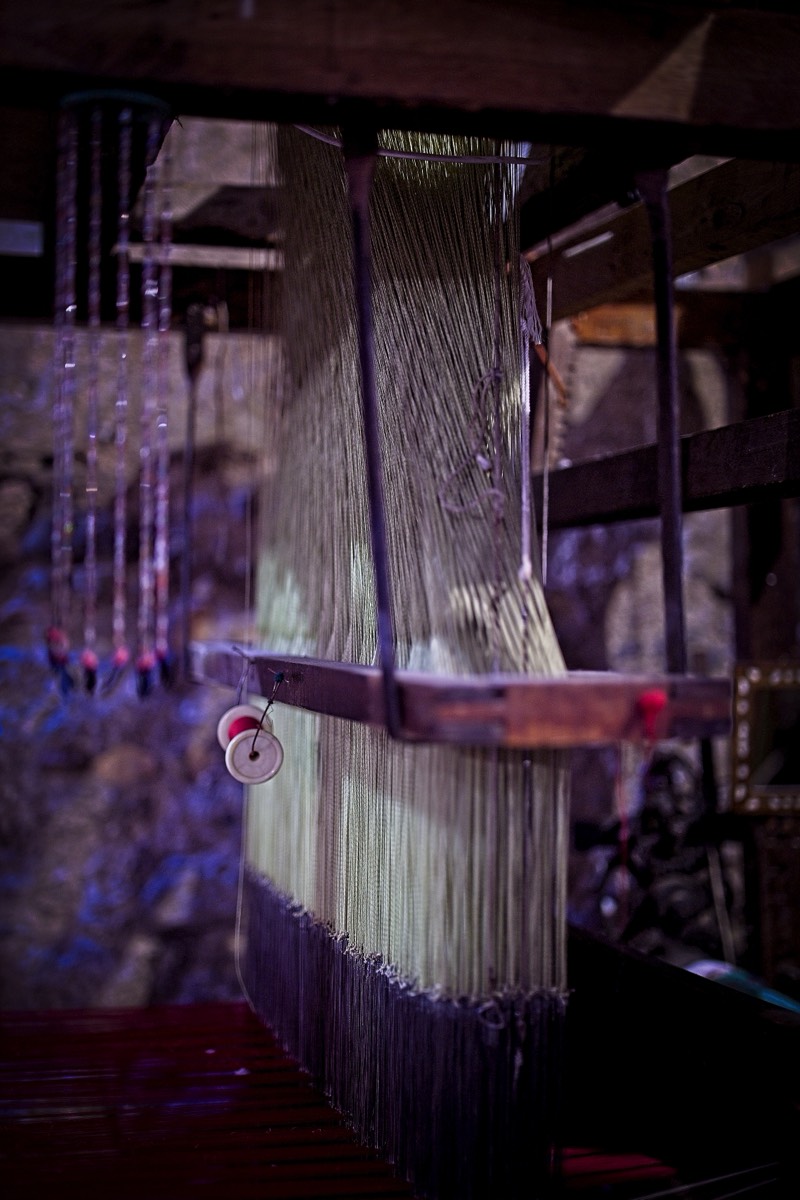
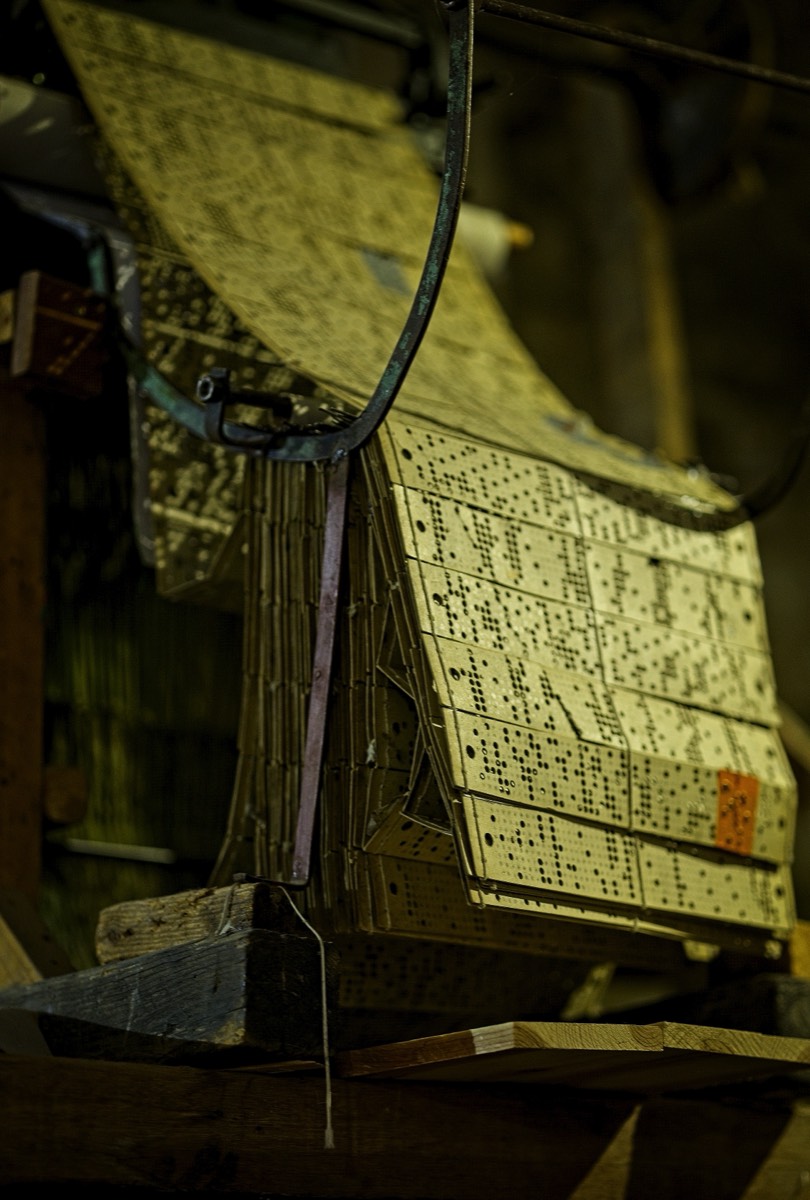
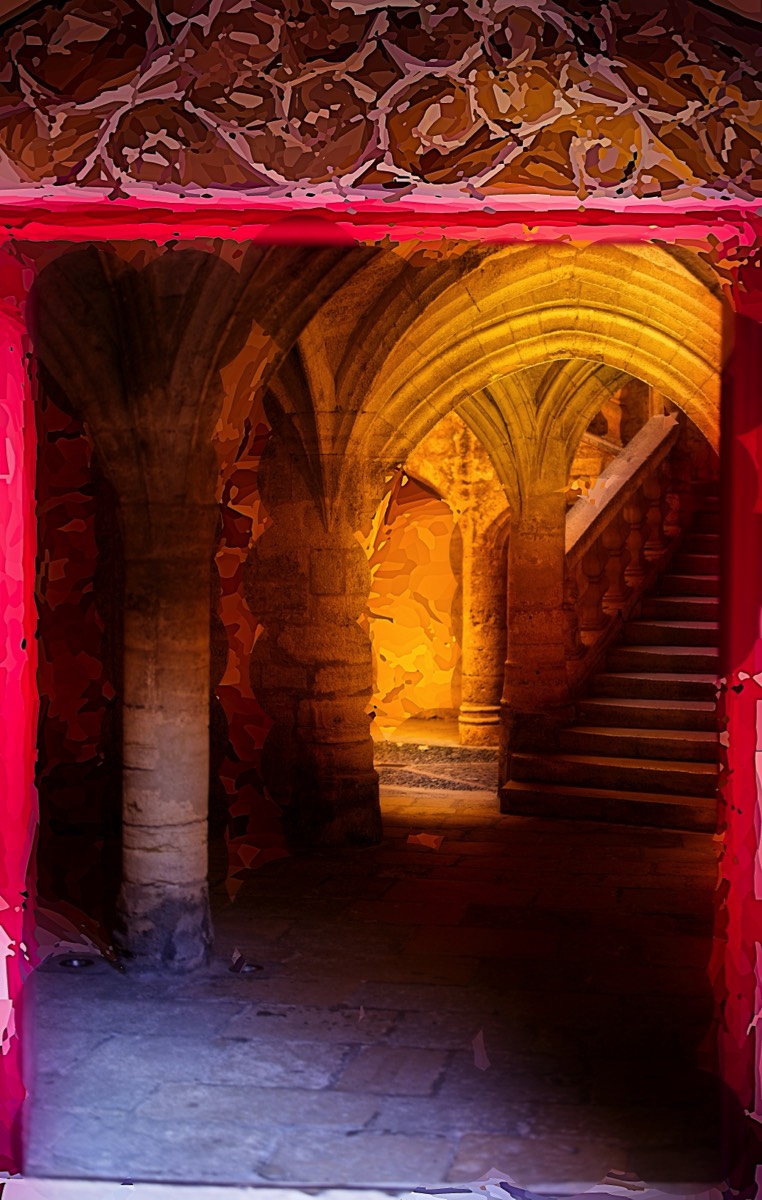
Site Search
- Images France
- Adissan Images
- Agde Images
- Aigne Images
- Aigues-Mortes
- Aigues-Vives
- Albi Images
- Arles Images
- Aumes Copy
- Bardou
- Bédarieux
- Bédarieux Stereo
- Beziers
- Boussagues
- Boussagues Stereo
- Brenas
- Cabreroles
- Cabretolles
- Camplong
- Carcassonne
- Caroux Stereo
- Castelnau-de-Guers
- Caussiniojouls
- Caux
- Cazouls-d'Hérault
- Celles
- Cirque de Mourèze
- Cirque Mourèze Stereo
- Clermont-lʼHérault
- Colombieres-sur-Orb
- Château de Mourcairol
- Château Grézan
- Colombieres Stereo
- Colombièrs-Le-Haut
- Cruzy
- Douch
- Estaussan
- Fabrezan
- Faugeres
- Faugeres Stereo
- FOS
- FOS Stereo
- Frontignan
- Gabion
- Gorges d'Heric
- Gorges d'Heric Stereo
- Graissessac
- Herepian
- Herepian Cycling
- Herepian Rally
- Herepian Stereo
- La-Couvertoirade
- Lagrasse
- Lamalou-les-Bains
- Les Pradal
- Libeil
- Lodève
- Madale de Rosis Stereo
- Minerve
- Minerve Stereo
- Mons-la-Trivalle
- Montagnac
- Montlaur
- Montpellier
- Murviel-lès-Béziers
- Music Prieuré StJulien
- Narbonne
- Nézignan-l’Evêque
- Nizas
- Olargues
- Olargues Stereo
- Passa Pais
- Passa Pais Stereo
- Péret Images
- Peyre
- Pezanas
- Pézènes Stereo
- Pézènes-les-Mines
- Quarante
- Roquebrun
- Saint-Julien
- St-Geniès-de-Fontedit
- St-Gervais-sur-Mare
- St Guilhem le Desert
- St-Martin-de-l'Arçon
- St-Martin-de-Londres
- St-Martin-de-Londr 3D
- St-Naxaire-de-Ladaraz
- St-Pons-de-Mauchiens
- St-Thibéry
- Salasc
- Sète
- Vieussan
- Vieussan Stereo
- Villeneuvette
- Villemagne-l'Argentaire
- Villemagne Stereo
- Voulte
- Technical Website
- Cushing Tree